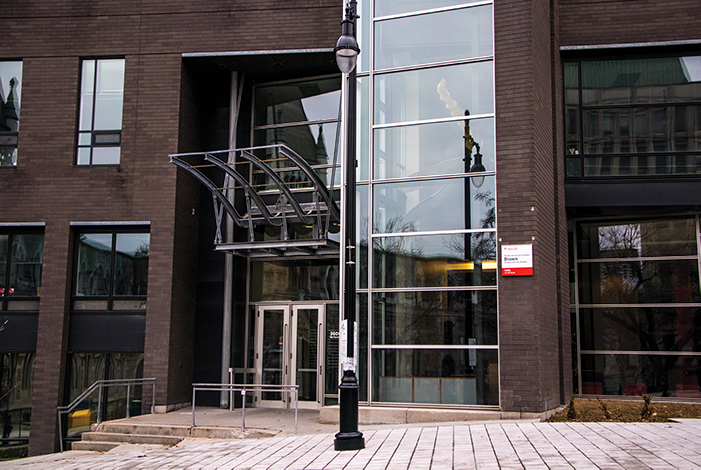The Students’ Society of McGill (SSMU) Special Committee on Anti-Semitism is in the planning stages of developing its recommendation for the SSMU Board of Directors (BoD) and Legislative Council. On March 14, the committee will advise the Board and Council on how to best confront anti-Semitism on campus and make Jewish-identifying students feel safer.
At the Nov. 26 BoD meeting, Director Jonathan Glustein, a member of the committee, presented the progress made. The committee has held two meetings thus far, on Nov. 14 and 20.
“We agreed on a timeline for the recommendation to be presented to both Council and the Board,” Glustein said. “[The committee] set about five different goals that they wanted to pursue. One of them is a definition on anti-Semitism, another one is […] a review of anti-Semitism historically at McGill.”
SSMU Legislative Council approved the committee at its Nov. 29 meeting, per a motion moved by Glustein. While intended to combat anti-Semitism on campus in general, the committee was created specifically in response to allegations of anti-Semitism at the Fall 2017 General Assembly (GA) on Oct. 23, as well as an open letter. The committee was struck shortly after McGill University announced its own investigation into the events of the GA on Oct. 25.
The committee includes representatives from various Jewish student cultural groups at McGill, including Hillel McGill, Chabad McGill, Independent Jewish Voices McGill, Am McGill, Israel on Campus, and the Jewish Studies Students Association, each of which have been given a single seat.
Although the committee has yet to establish how it will proceed with developing its recommendation, Noa Levin, the committee representative for Am McGill felt that establishing the body was an important first step.
“The General Assembly […] left a lot of people feeling very concerned and confused,” Levin said. “The fact that [the] committee exists [means] there’s already a lot of Jewish students in a room that are now being empowered to affect their experience on campus.”
However, not all groups represented on the committee agree with its methods. Tali Ioselevich, a member of Independent Jewish Voices McGill (IJV), an anti-Zionist Jewish student group, said that in IJV’s view, the events of the GA—namely, Director Noah Lew’s failure to be ratified—were not anti-Semitic.
“The claim that Noah Lew was not ratified because he’s a Jewish student […] is not substantiated,” Ioselevich said. “If you look at the people who voted against Noah Lew at the GA, a lot of Jews voted against him. And [that] was not only [because of] his stance on [Boycott, Divest, and Sanctions against Israel], but also the fact that he was not transparent in his dealings with SSMU, which are totally legitimate reasons to vote someone down.”
IJV was given a seat when the committee was struck at Council, but was only informed after IJV president Hani reached out to Glustein.
“There are actual cases of anti-Semitism on campus, and those should be addressed,” Ioselevich said. “But the committee itself was created directly in response to the [events of] the GA, which were not in and of itself a case of anti-Semitism.”
Ioselevich nonetheless affirmed the importance of IJV’s role on the committee.
“It’s very important for us to have a seat at the table,” Ioselevich said. “Otherwise, […] it seems to me that there would be a homogeneity in the perspectives, and if we’re not there, it might as well be an open and shut case of, yeah, [the events of the GA] were anti-Semitism.”
Despite differences within the committee, Levin expressed optimism about its effectiveness.
“Obviously, people have different political opinions, but we are all committed to making this campus a safe and encouraging place for Jewish people, so I’m confident that we’ll be able to work together,” Levin said.
Chabad McGill, Hillel McGill, and Israel on Campus did not provide comment by press time.









